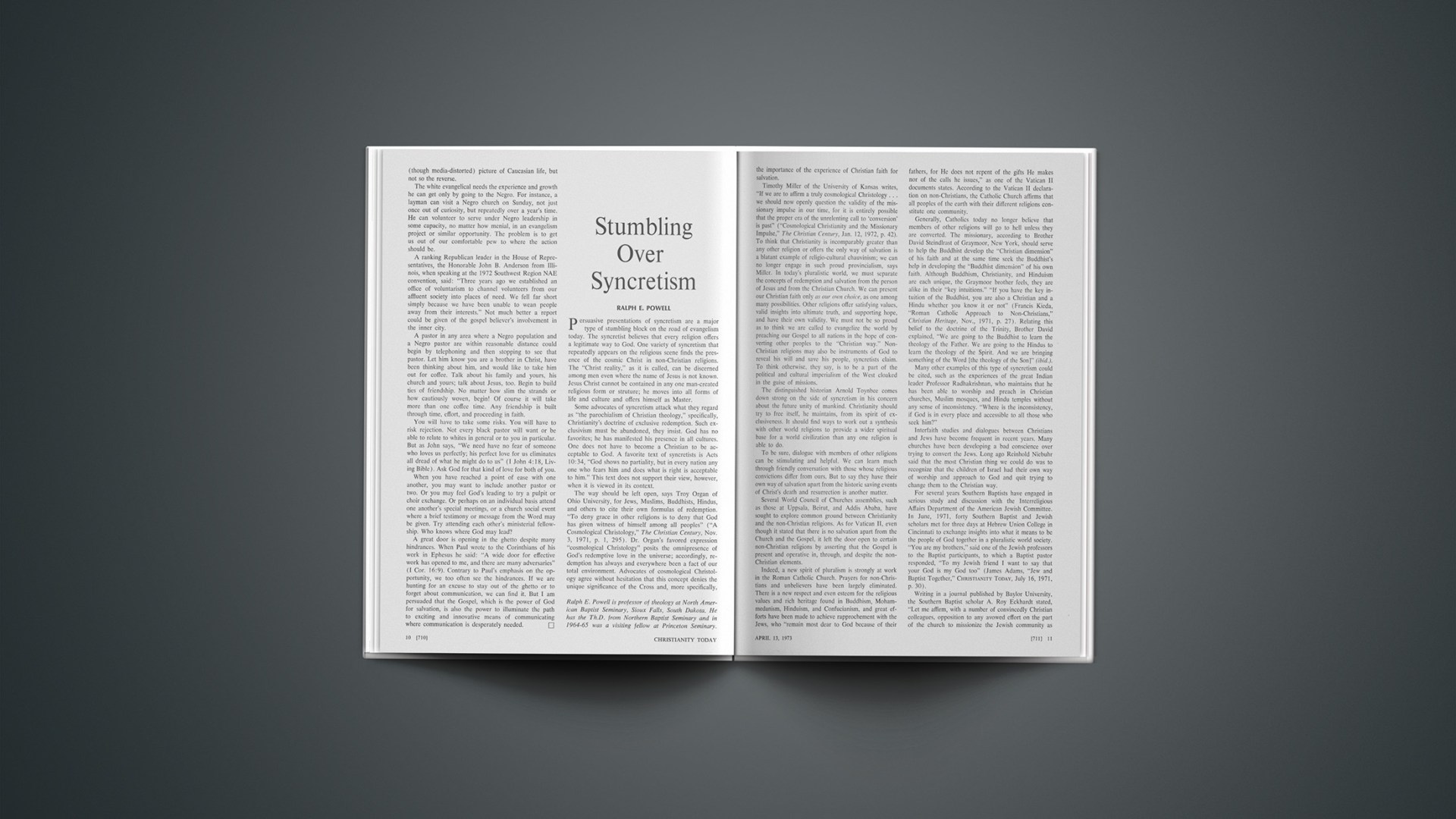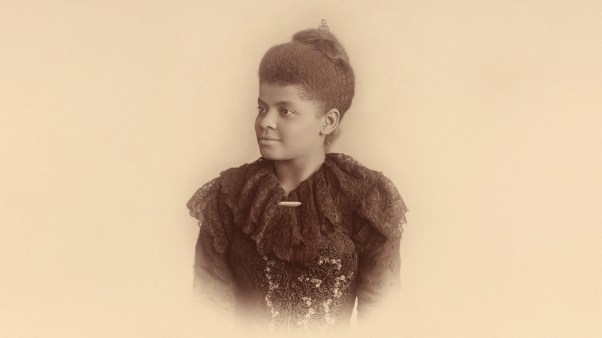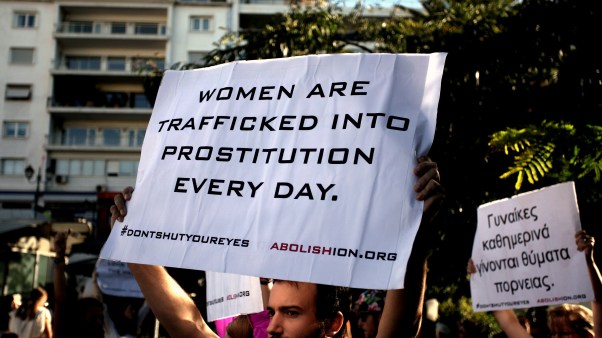Persuasive presentations of syncretism are a major type of stumbling block on the road of evangelism today. The syncretist believes that every religion offers a legitimate way to God. One variety of syncretism that repeatedly appears on the religious scene finds the presence of the cosmic Christ in non-Christian religions. The “Christ reality,” as it is called, can be discerned among men even where the name of Jesus is not known. Jesus Christ cannot be contained in any one man-created religious form or struture; he moves into all forms of life and culture and offers himself as Master.
Some advocates of syncretism attack what they regard as “the parochialism of Christian theology,” specifically, Christianity’s doctrine of exclusive redemption. Such exclusivism must be abandoned, they insist. God has no favorites; he has manifested his presence in all cultures. One does not have to become a Christian to be acceptable to God. A favorite text of syncretists is Acts 10:34, “God shows no partiality, but in every nation any one who fears him and does what is right is acceptable to him.” This text does not support their view, however, when it is viewed in its context.
The way should be left open, says Troy Organ of Ohio University, for Jews, Muslims, Buddhists, Hindus, and others to cite their own formulas of redemption. “To deny grace in other religions is to deny that God has given witness of himself among all peoples” (“A Cosmological Christology,” The Christian Century, Nov. 3, 1971, p. 1, 295). Dr. Organ’s favored expression “cosmological Christology” posits the omnipresence of God’s redemptive love in the universe; accordingly, redemption has always and everywhere been a fact of our total environment. Advocates of cosmological Christology agree without hesitation that this concept denies the unique significance of the Cross and, more specifically, the importance of the experience of Christian faith for salvation.
Timothy Miller of the University of Kansas writes, “If we are to affirm a truly cosmological Christology … we should now openly question the validity of the missionary impulse in our time, for it is entirely possible that the proper era of the unrelenting call to ‘conversion’ is past” (“Cosmological Christianity and the Missionary Impulse,” The Christian Century, Jan. 12, 1972, p. 42). To think that Christianity is incomparably greater than any other religion or offers the only way of salvation is a blatant example of religio-cultural chauvinism; we can no longer engage in such proud provincialism, says Miller. In today’s pluralistic world, we must separate the concepts of redemption and salvation from the person of Jesus and from the Christian Church. We can present our Christian faith only as our own choice, as one among many possibilities. Other religions offer satisfying values, valid insights into ultimate truth, and supporting hope, and have their own validity. We must not be so proud as to think we are called to evangelize the world by preaching our Gospel to all nations in the hope of converting other peoples to the “Christian way.” Non-Christian religions may also be instruments of God to reveal his will and save his people, syncretists claim. To think otherwise, they say, is to be a part of the political and cultural imperialism of the West cloaked in the guise of missions.
The distinguished historian Arnold Toynbee comes down strong on the side of syncretism in his concern about the future unity of mankind. Christianity should try to free itself, he maintains, from its spirit of exclusiveness. It should find ways to work out a synthesis with other world religions to provide a wider spiritual base for a world civilization than any one religion is able to do.
To be sure, dialogue with members of other religions can be stimulating and helpful. We can learn much through friendly conversation with those whose religious convictions differ from ours. But to say they have their own way of salvation apart from the historic saving events of Christ’s death and resurrection is another matter.
Several World Council of Churches assemblies, such as those at Uppsala, Beirut, and Addis Ababa, have sought to explore common ground between Christianity and the non-Christian religions. As for Vatican II, even though it stated that there is no salvation apart from the Church and the Gospel, it left the door open to certain non-Christian religions by asserting that the Gospel is present and operative in, through, and despite the non-Christian elements.
Indeed, a new spirit of pluralism is strongly at work in the Roman Catholic Church. Prayers for non-Christians and unbelievers have been largely eliminated. There is a new respect and even esteem for the religious values and rich heritage found in Buddhism, Mohammedanism, Hinduism, and Confucianism, and great efforts have been made to achieve rapprochement with the Jews, who “remain most dear to God because of their fathers, for He does not repent of the gifts He makes nor of the calls he issues,” as one of the Vatican II documents states. According to the Vatican II declaration on non-Christians, the Catholic Church affirms that all peoples of the earth with their different religions constitute one community.
Generally, Catholics today no longer believe that members of other religions will go to hell unless they are converted. The missionary, according to Brother David Steindlrast of Graymoor, New York, should serve to help the Buddhist develop the “Christian dimension” of his faith and at the same time seek the Buddhist’s help in developing the “Buddhist dimension” of his own faith. Although Buddhism, Christianity, and Hinduism are each unique, the Graymoor brother feels, they are alike in their “key intuitions.” “If you have the key intuition of the Buddhist, you are also a Christian and a Hindu whether you know it or not” (Francis Kieda, “Roman Catholic Approach to Non-Christians,” Christian Heritage, Nov., 1971, p. 27). Relating this belief to the doctrine of the Trinity, Brother David explained, “We are going to the Buddhist to learn the theology of the Father. We are going to the Hindus to learn the theology of the Spirit. And we are bringing something of the Word [the theology of the Son]” (ibid.).
Many other examples of this type of syncretism could be cited, such as the experiences of the great Indian leader Professor Radhakrishnan, who maintains that he has been able to worship and preach in Christian churches, Muslim mosques, and Hindu temples without any sense of inconsistency. “Where is the inconsistency, if God is in every place and accessible to all those who seek him?”
Interfaith studies and dialogues between Christians and Jews have become frequent in recent years. Many churches have been developing a bad conscience over trying to convert the Jews. Long ago Reinhold Niebuhr said that the most Christian thing we could do was to recognize that the children of Israel had their own way of worship and approach to God and quit trying to change them to the Christian way.
For several years Southern Baptists have engaged in serious study and discussion with the Interreligious Affairs Department of the American Jewish Committee. In June, 1971, forty Southern Baptist and Jewish scholars met for three days at Hebrew Union College in Cincinnati to exchange insights into what it means to be the people of God together in a pluralistic world society. “You are my brothers,” said one of the Jewish professors to the Baptist participants, to which a Baptist pastor responded, “To my Jewish friend I want to say that your God is my God too” (James Adams, “Jew and Baptist Together,” CHRISTIANITY TODAY, July 16, 1971, p. 30).
Writing in a journal published by Baylor University, the Southern Baptist scholar A. Roy Eckhardt stated, “Let me affirm, with a number of convincedly Christian colleagues, opposition to any avowed effort on the part of the church to missionize the Jewish community as such.… For if the Jewish people are not already amongst the family of God, we who are Gentiles remain lost without hope” (“Toward an Authentic Jewish-Christian Relationship,” Journal of Church and State, Spring, 1971, p. 276). As Christians we must understand, Eckhardt said, that “the Jewish non-acceptance of Jesus as the Christ is an act of faithfulness to the God of the covenant, and not, as in the historic Christian polemic, an act of faithlessness.”
THREE PROPHETS: 3. AMOS
You dirty sheepherder!
How dare you
assault us with your verbiage,
hurl adjectives like garbage
at our coiffured heads!
We are the hope
of Israelite society,
making our homes
in the hilly
Samarian suburbs,
prodding our mates
to production,
gathering gold and glory
for our young.
“The poor,” you rant,
“you crush the poor and needy.”
We say, “Let the poor
crush themselves!
Impediments to progress,
our land exceeds in such.
Stomp them out!
We are God’s favored.”
Why do you throw
your countrified insults
at us?
“Cows,” you scream,
“fat cows of Bashan,”
jealous no doubt
for your own scrawny sheep.
Your metaphors wear the mood
of your meager background.
Be gone, pitiful prophet,
with your wild words
of meathooks and cattle.
God sees our sacrifices,
would not dare touch us.
We are His future.
We herald His kingdom
with wealth and wine for all.
Back to your mangers and mutton!
Your words are fare fit
for the fields you hail from
to our spangled ears.
and foreign
NANCY THOMAS
Applying the Pauline teaching in Romans 11 to the sphere of Jewish-Christian relations, Frank M. Cross, Jr., writes that the Church affirms the validity and eternity of the election and vocation of Israel. Christians are not to refer to Judaism “as ‘another religion,’ or as a false form of the biblical faith” (“A Christian Understanding of the Election of Israel,” Andover Newton Quarterly, March, 1968, p. 237).
The entire question of the validity of the Christian mission is under scrutiny within the Christian Church, and the effect of this upon evangelism is felt in evangelical as well as liberal circles. The mood of religious toleration inevitably affects our motivation in evangelism. We may begin to think that-to assert the uniqueness and absolute Lordship of Christ, the indispensability of his atoning death and resurrection, violates the spirit of intellectual and spiritual tolerance.
Fortunately, numerous competent scholars defend the validity, necessity, and uniqueness of the Christian mission in today’s pluralistic world. (See, for example, J. N. D. Anderson, Christianity and Comparative Religion; W. A. Visser’t Hooft, No Other Name; Lesslie Newbigin, The Finality of Christ; and D. Elton Trueblood, The Validity of the Christian Mission.) Christian evangelism, done in the spirit of Christ himself, who commanded us to be his witnesses in the world to the end of the age, does not violate the spirit of tolerance or the cultural heritage of peoples whose ethnic backgrounds differ widely from our own. What it does is meet all people as no other religion or philosophy does, in their most basic and urgent human needs. It is the only hope of salvation for lost mankind.
Christian witness-bearers must respect the views of others and be willing to listen patiently. They must face honestly the questions, challenges, doubts, and problems people have about the Christian faith. They must humbly recognize in other religions areas of common concern as well as points of difference. They must approach those of other faiths with discretion, recognizing that their beliefs have religious meaning to them and probably have had to generations before them. But they must also be soundly persuaded that Jesus Christ is the way, the truth, and the life and that no one comes to the Father but by him. Christians are called to announce this good news and seek through tact, wisdom, and love to win people to Christ, the only Saviour of the world.
The Christian who is firmly grounded in the truth of Christ’s Gospel and confident of his faith can go far in the direction of openness to other religions with the assurance that “when we have listened to the best that the other religions have to say, Christ opens up new dimensions of which they have no knowledge, and so, taking into himself everything good they have found, leads us beyond unto regions in which he alone is Lord” (Stephen Neill, “Syncretism and Missionary Philosophy Today,” Review and Expositor, Winter, 1971, p. 68). As we do so, Bishop Neill reminds us, we must make sure it is the pure truth and light of the Gospel to which we are witnessing, rather than any elements of merely human construction, such as cherished traditions or national, sectarian, or cultural accretions. “May it not be that, before we prepare to cast out the mote in our brother’s eye, we must become aware of the beam that is in our own eye, and learn to submit ourselves humbly to the cleansing judgment of God as our best preparation for going out to proclaim to others the glory of his only-begotten Son?”
George M. Marsden is associate professor of history at Calvin College, Grand Rapids, Michigan. He has the Ph.D. (Yale University) and has written “The Evangelical Mind and the New School Presbyterian Experience.”










